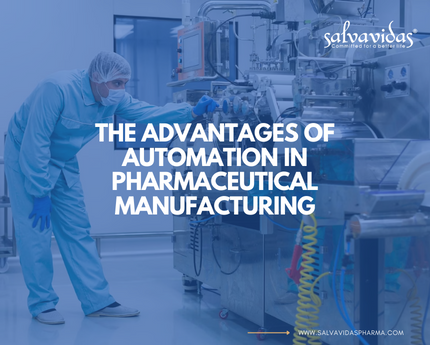
Introduction:
The pharmaceutical manufacturing industry is one of the most highly regulated industries in the world. The production of pharmaceutical products requires strict adherence to safety and quality standards. The introduction of automation in the pharmaceutical manufacturing process has revolutionised the industry, making it more efficient, productive, and safe. In this article, we will explore the advantages of automation in pharmaceutical manufacturing and how it has improved the industry.
Advantages of Automation in Pharmaceutical Manufacturing:
Improved Efficiency: Automation has significantly improved the efficiency of the pharmaceutical manufacturing process. Automated machines can work around the clock, producing products at a much faster rate than manual labour. Automated systems can also carry out repetitive tasks, such as filling and labelling, more accurately and efficiently than human workers.
Increased Productivity: Automated systems can operate 24/7, increasing productivity and reducing downtime. With automation, pharmaceutical companies can produce more products in a shorter amount of time, thereby increasing their bottom line. Automation also reduces the need for human intervention, which reduces the chances of errors and delays in the manufacturing process.
Better Quality Control: Automated systems can monitor and control the manufacturing process, ensuring that the products are manufactured to the required quality standards. Automated systems can detect any deviations in the manufacturing process and take corrective actions to ensure that the final product meets the required specifications. This level of quality control is difficult to achieve with manual labour.
Enhanced Safety: Automation has significantly enhanced safety in pharmaceutical manufacturing. Automated systems can handle hazardous materials and processes, reducing the risk of accidents and exposure to harmful chemicals. Automated systems can also reduce the risk of contamination, as they can operate in a clean and controlled environment
Cost-Effective: Automation in pharmaceutical manufacturing is a cost-effective solution for companies. Automated systems can produce more products in less time, reducing labour costs and increasing the overall efficiency of the manufacturing process. Automation also reduces the chances of human error, which can result in costly mistakes and delays.
FAQs:
Q: What are the disadvantages of automation in pharmaceutical manufacturing?
A: The main disadvantage of automation in pharmaceutical manufacturing is the initial cost of setting up automated systems. Additionally, automated systems require maintenance, which can be costly.
Q: How does automation improve quality control in pharmaceutical manufacturing?
A: Automated systems can monitor and control the manufacturing process, ensuring that the products are manufactured to the required quality standards. Automated systems can detect any deviations in the manufacturing process and take corrective actions to ensure that the final product meets the required specifications.
Q: How does automation enhance safety in pharmaceutical manufacturing?
A: Automation has significantly enhanced safety in pharmaceutical manufacturing. Automated systems can handle hazardous materials and processes, reducing the risk of accidents and exposure to harmful chemicals. Automated systems can also reduce the risk of contamination, as they can operate in a clean and controlled environment.
Conclusion:
Automation in pharmaceutical manufacturing has revolutionised the industry, offering numerous advantages such as increased efficiency, productivity, quality control, safety, and cost-effectiveness. The use of automated systems has become an essential part of the pharmaceutical manufacturing process, allowing companies to produce high-quality products at a faster rate and at a lower cost. As technology continues to evolve, we can expect to see further advancements in automation in pharmaceutical manufacturing.




0